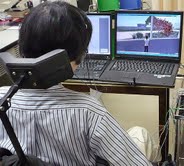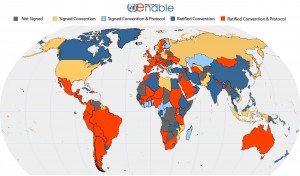Sarah Amin has a Masters of International Affairs at the School of International Service at American University. Her academic focus is Gender and Human Rights, and her research interests focus on the intersection of international politics and feminist disability studies. As a contributor to the NotEnoughGood blog, she researched human rights advocacy, international disability rights issues and policies, and gender equality.
Most commented posts
- Disabled Actors and Acting Disabled — 2 comments












